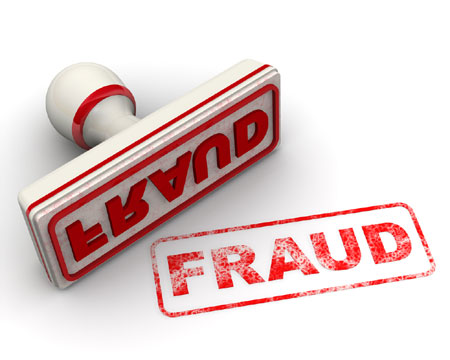 Notaries protect the public from document fraud — but Notaries aren’t immune from fraud themselves. Criminals often use a phony Notary seal impression to make counterfeit documents look authentic. If they can’t steal a real Notary stamp, they are just as likely to copy and forge a seal impression from an existing document. And any Notary is a potential victim.
Notaries protect the public from document fraud — but Notaries aren’t immune from fraud themselves. Criminals often use a phony Notary seal impression to make counterfeit documents look authentic. If they can’t steal a real Notary stamp, they are just as likely to copy and forge a seal impression from an existing document. And any Notary is a potential victim.
There’s not much you can do to prevent someone from lifting an image of your seal from a document you’ve notarized. But there are steps you can take to protect yourself in the event you get that unwelcome call from law enforcement or someone’s attorney.
Step 1: If you find out someone has forged your seal, report it ASAP
If you have reason to believe someone has forged your seal or is otherwise misusing your Notary information, be sure to report it to the authorities immediately. Many jurisdictions have real estate fraud investigative units. They would want to know this happened. In addition to reporting the forgery to law enforcement, you may wish to notify your state Notary regulating authority as well. Be sure to ask for a copy of any reports you file so that you can show that the forgery was committed by someone else using your Notary information.
Step 2: Always keep an up-to-date Notary journal
A well-kept Notary journal is always your best defense against accusations of fraud. Even if you’re not required by your state’s laws to keep a journal, maintaining records of each notarization you perform can be used to show that you didn’t perform the improper notarization involving a forged seal. For example, let’s say a crook photocopies an image of your seal and impersonates you in notarizing a fraudulent real estate document. Detailed journal records can show you didn’t notarize the shady transaction and provide supporting evidence that you always follow a reasonable standard of care when notarizing. More than a few Notaries have used their journals to show a notarization was forged.
Step 3: Make sure you have errors and omissions insurance
The worst thing about a forged seal is that all too often Notaries are sued because their name and information are on the forged seal impression.
What’s more, you may incur sizeable expenses defending yourself and getting a lawsuit against you dismissed.
In a recent California case, for example, a ring of criminals copied information from genuine Notary seal impressions on public documents and used it to create counterfeit seals. They then fraudulently sold unoccupied properties. When the victims found out, they sued the Notaries whose seals were faked. While the Notaries ultimately were dismissed from the lawsuits, having an attorney file the court motions cost several thousand dollars. An Errors and Omissions (E&O) insurance policy will cover those court costs.
Most Notaries think an E&O policy is necessary only if they make a mistake, but the truth is an E&O policy will cover you from baseless allegations such as a bogus Notary seal claim as well.
David Thun is the Assistant Managing Editor with the National Notary Association.
Related Articles:
Notary Tip: 4 steps to take if you are sued